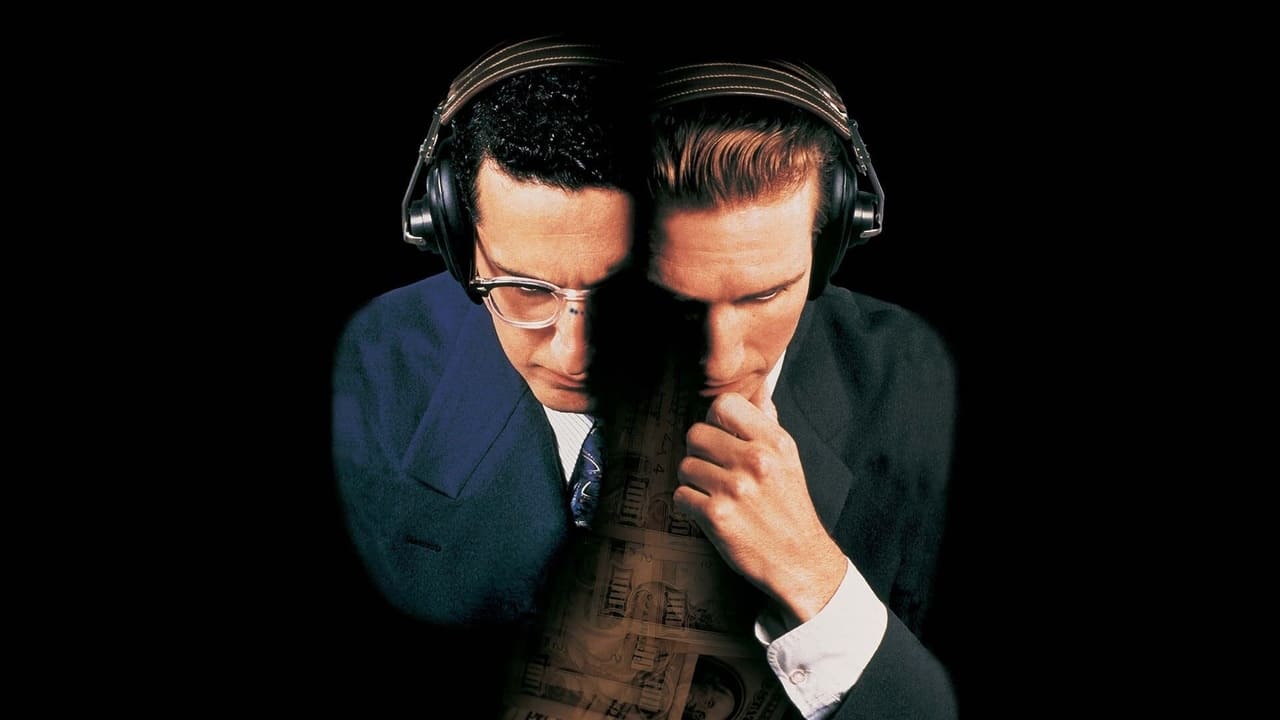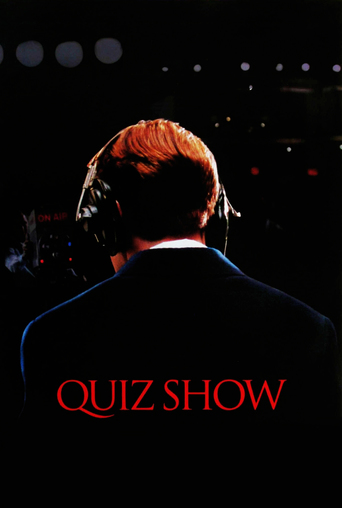

The fix is in and television are the fixers.Quiz Show is a thoroughly fascinating picture. Based on the true story of the rigging of the American hit game show "Twenty-One", and when America was captivated by the sharp and handsome intellectual faker Charles Van Doren over the schlubby savant Herb Stempel. Robert Redford meticulously brings back to life the art of the 1950's television game show. The glitz, the glamour, the product placements. Michael Ballhaus's cinematography takes your breath away, especially in the scene in which Stempel is forced to take the fall for Van Doren. Quite simply, one of the great scenes I've ever seen in film. Not to mention, John Turturro gives a performance for the ages.When the studio cameras are off and the congressional investigation begins, sadly, the film loses it's energy and edge and becomes a standard courtroom drama. But it must be stated, when this film gets you, you won't look away.
... View MoreThere's something appropriate about Robert Redford heading up a movie about the mid-century quiz show scandals; after all, a lot of this movie centers on a government bureaucrat sniffing for answers. It's not Watergate, but surprisingly engrossing for something related to television. The movie takes its time basking in '50s nostalgia before the real drama kicks in. But when it does, it's remarkable. Subtle, but riveting nonetheless. And even with the shady goings-on it's one of the classier movies I've seen in a long time.That said, the cynicism runs alarmingly deep. The dirty laundry is aired before Congress, but it's not the bad guys that end up paying. The contestants who played along end up being destroyed, while the larger machine continues to churn right along; and that is one bitter ending.Great movie.8/10
... View MoreSmart, Deceitful and RuthlessA historically accurate and entertaining film, Robert Redford's Quiz Show is about the lies and deceit of reality television back in the 1950's. The two main characters are Herbie Stempel, a contestant who is unbeatable, but is pressured by NBC executives, Dan Enright and Albert Freedman, to lose to charismatic, Charles Van Doren. The movie progress with Richard "Dick" Goodwin trying to uncover the truth behind the quiz shows.The Quiz Show is an scrutinizing, remorseless portrayal of the American people. Charles Van Doren is willing to cheat to try and receive attention from his father and when he fails to do that he settles for the attention of the American people. Herbie Stempel is socially awkward, which make him willing to cheat for fame and recognition. Recognition of the fact that he was very intelligent, intelligence which he prided himself on. Richard Goodwin is a naive, newly graduated law student who thinks that law will bring justice to the corrupt system of reality television. Dan Enright and Albert Freedman are businessmen to their core, selling the product of reality television. Reality television wasn't about providing recognition to those who deserved it but selling the idea of money to the American people. They knew people watched the shows for the money and not for the questions, so instead of making the show about knowledge they made it about gaining the most viewers providing viewers with the most interesting contestants. The motives behind each of these characters makes them relatable to the audience, making viewers care about them and the plot. The whole movie in general was very real, the setting of 1950s America was very accurate, besides a few minor details. In general, the actors did phenomenal jobs portraying their characters, Ralph Fiennes execution of Charles Van Doren and David Paymer portrayal of Dan Enright were amazing, on the other hand John Turturro's representation of Herbie Stempel felt like a caricature.Paul Attanasio's screenplay is witty, smart, subtle yet ruthless, utilizes the power of foreshadowing and full of memorable dialogue. Despite it's failure in the box office, it's a critically acclaimed movie that is a must see for all.
... View MoreRobert Redford's Quiz Show is a pretty decent film that has some social, economic, and political morals to share. This drama is mostly riveting and it has an interesting story to tell. It's well-directed film by Redford who turned out to be a good director. The acting is great by everybody. My only problem is this film runs a little too long and it seems stale at some points.Redford's film is based off a true story. In 1958, NBC started a game show craze especially with their hit show 21. When champion Herb Stampel is kicked out and replaced by the popular Charles Van Doren, NBC comes under fire as it's revealed that the champions may have been given the answers to the questions.As mentioned before, the acting is phenomenal. John Turturro and Ralph Fiennes are great in their respective roles as the champions. David Paymer certainly makes a slimy guy. I was very surprised to see Martin Scorcese in an acting role, but I was very pleased.Overall, this is a decent film that goes on about corruption. Despite some staleness, I rather liked this film. It's not the best film of 1994, but it's easily entertaining. As for the subject matter, it's very hard to make a good mainstream film with it. But, somehow Robert Redford did it. I rate this film 8/10.
... View More